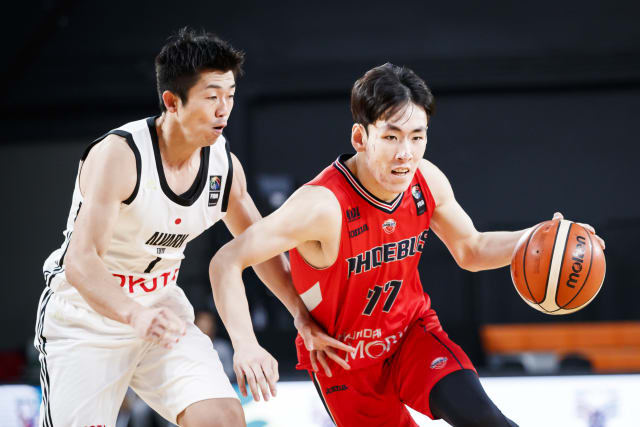Korea, Japan cooperate with implementation of ''Asian Player Quotas'' in professional leagues
SEOUL (Korea) - The professional leagues in Korea & Japan will be implementing "Asian Player Quotas" this upcoming season as part of beginning to expand the market and cooperate with other Asian countries.
SEOUL (Korea) - Japan and Korea are two neighboring countries, separated just less than 1000 kilometers apart by the East Sea. Both are also proud basketball nations that have experienced success on many levels. Though this has resulted in a competitive atmosphere between both nations, it has also blossomed into a friendly rivalry where they help each other develop basketball in their countries.
The most recent example of the cooperation between these two is the implementation of "Asian Player Quota" in the Korean Basketball League (KBL) for the first time in this upcoming 2020-2021 season. The rule will allow players from Japan to play in Korea’s professional basketball league.
"The professional basketball leagues in Korea and Japan have closely interacted in various areas such as the Korea-Japan Basketball Championships in the past," said Junwoo Lee, General Manager of the KBL. "After signing the KBL and B.League business agreement back in May 2019, we have been interacting in various ways such as youth basketball."
"The Asian Player Quota was also decided through various discussions after the agreement."
"This ‘Quota’ is for Japanese players," Lee explained. "Each KBL team can have one Japanese player. They can play full time in a game [similar to a domestic Korean player]. They are included in the domestic salary cap and team roster as well.
"The rule excludes players who are naturalized or has dual nationality."
As of this upcoming season, the Asian Player Quota is reserved only for players from Japan. However, it is just the beginning; the bigger picture is to build more partnerships across Asia.
"Currently, only Japanese players are allowed," Lee said. "The leagues of both countries have implemented this rule first through regular interaction and cooperation. In the future, we plan to expand the rule through strengthening exchanges with leagues of other Asian countries."
It didn’t take long for the Asian Player Quota to gain interest and display glimpses of its potential. Not long after the KBL formally announced the implementation of the rule, the media started reporting rumors of mutual interest between up-and-coming Japanese sharpshooter Nakamura Taichi and KBL club Wonju DB Promy.
Taichi played for B.League’s Kyoto Hannaryz last season and was also a member of the national team at Asian Games 2018. However, he also played for Wonju’s current head coach Lee Sang-Beom when the Korean tactician was roaming the sidelines at the high school level in Japan.
Moreover, the cooperation between these two leagues will be a two-way road.
"KBL [free agents] can transfer to the B.League,” Lee revealed. “Non-free agent players can also go to the B.League by trade or loan between teams."

KBL Champion Hyundai Mobis Phoebus vs B.League Champion Alvark Tokyo
(FIBA Asia Champions Cup 2019)
There are plenty of expectations with the implementation of this rule. As basketball in Asia continues to rapidly develop towards its massive potential, the rule will only help to accelerate the process in multiple ways.
"First of all, there is an expectation of stronger teams," Lee explained. "Also, players can have more options. As they show good performances, we also believe there will be good effects on the marketing side."
"For now, the system applies only in Korea and Japan. However, if it extends to other countries in Asia, the limited markets will be extended as well. Through this, we expect various economic effects that would increase league competitiveness."
As the KBL repeatedly emphasizes, they do not look to limit these partnerships just to only between the two countries. There is plenty of potential moving forward in this direction.
"We expect that the rule, starting with Japan, will expand to other Asian countries in the future,” Lee said. “Based on the player exchange, we hope to have more active exchanges among leagues, which can lead to the expansion of the market through various competitions. The expansion of the market means positive effects such as vitalizing PR and marketing in various fields. It also means that each league’s competitiveness and commercial value are strengthened."
FIBA